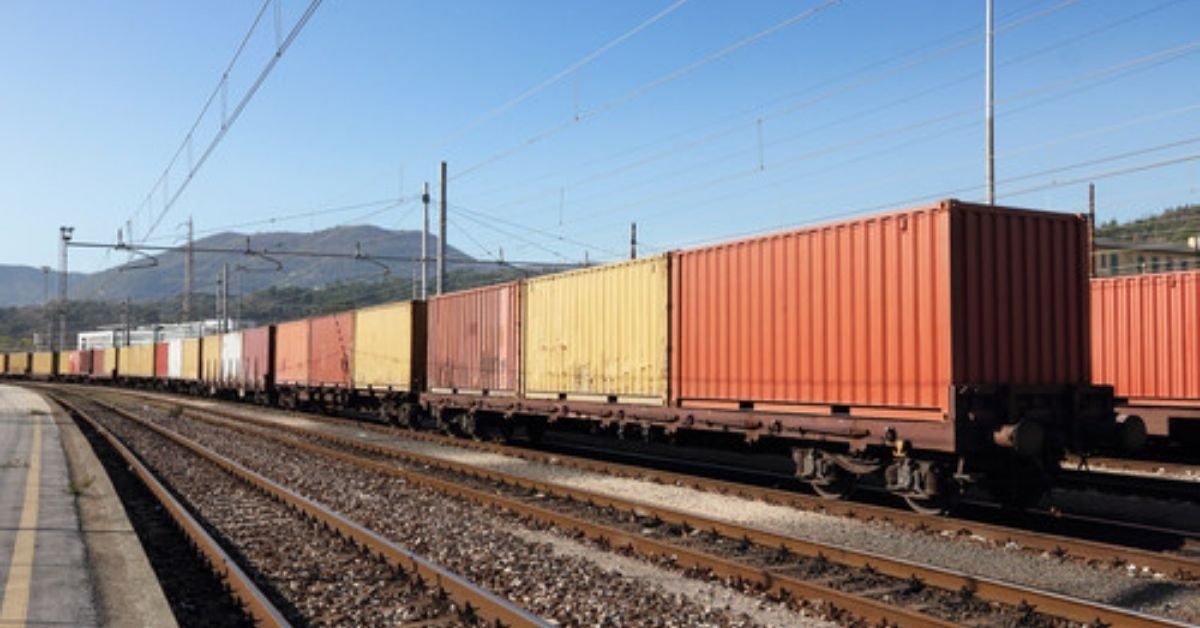In a significant step toward modernizing freight logistics, Indian Railways has rolled out its first assured transit time container train service, linking Delhi with Kolkata. The pilot initiative, launched in collaboration with Container Corporation of India Limited (CONCOR), promises guaranteed delivery within 120 hours, providing businesses with a more predictable and reliable alternative to road transport.
A Landmark Pilot Run
The fixed-time service operates bi-weekly, departing from Inland Container Depot (ICD) Tughlakabad in Delhi and terminating at the Container Terminal Container Station (CTCS) in Kolkata. En route, the train passes through Agra and Kanpur, two key freight junctions in northern India.
For the pilot phase, departures are scheduled every Wednesday and Saturday. This timetable is designed to test both operational feasibility and customer demand, while also helping the Railways evaluate the potential for scaling up the service to more routes across the country.
Key Features of the Service
At the heart of this new model lies a guaranteed 120-hour delivery time. Unlike traditional freight trains that operate with variable schedules depending on track availability and operational factors, this container service is designed to run on a fixed transit schedule. For shippers, this translates into:
- Assured delivery: Goods reach Kolkata within five days of departure from Delhi.
- Priority handling: Early adopters of the service are promised preferential treatment in loading, unloading, and terminal clearance.
- Greener logistics: By shifting time-sensitive freight from road to rail, the service significantly reduces carbon emissions, aligning with India’s sustainability goals.
Addressing Long-Standing Challenges
One of the biggest concerns businesses face in using rail for cargo movement has been unpredictability. Road transport, despite being costlier and more polluting, often provides faster and more reliable end-to-end service for time-sensitive goods.
With the launch of a fixed-time container train, Indian Railways is directly addressing this pain point. For sectors such as FMCG, e-commerce, electronics, and auto components—where delivery windows are critical—the 120-hour guarantee could prove transformative.
“Supply chains thrive on predictability. By introducing assured transit schedules, Indian Railways is positioning itself as a serious competitor to road freight. This move will particularly benefit shippers who need reliability but also want to optimise costs,” said a logistics industry executive.
Cost Advantage Over Road
While pricing details have not been officially disclosed, industry sources indicate that the cost of moving goods via the new container service will be competitive with trucking. The economics are straightforward: road transport between Delhi and Kolkata typically takes four to five days, depending on traffic and road conditions. The fixed-time train offers the same delivery window, but at a potentially lower cost per tonne.
Additionally, rail allows for larger bulk movement with less exposure to delays caused by weather, tolls, or highway congestion. For high-volume shippers, this translates into both cost efficiency and reduced operational risk.
Sustainability Gains
Beyond economics, the service also underscores India’s commitment to greener freight solutions. According to the International Energy Agency (IEA), railways emit about one-sixth the carbon dioxide of road transport per tonne-km of cargo moved.
By encouraging modal shift from trucks to trains, Indian Railways is helping lower the logistics sector’s carbon footprint. With India aiming to achieve net-zero emissions by 2070, such initiatives will play a crucial role in decarbonising freight movement.
Building a Customer-Centric Rail Network
The launch of this fixed-time service is part of a broader strategy by Indian Railways to make its logistics offerings more customer-focused. The ministry has been working on multiple initiatives, including dedicated freight corridors, digital tracking systems, and partnerships with private operators to create an integrated, multimodal logistics ecosystem.
Industry Outlook
Experts believe that if the pilot proves successful, similar services could be introduced on major freight corridors such as Delhi–Mumbai, Delhi–Chennai, and Mumbai–Bengaluru, which handle some of the country’s heaviest cargo volumes. These corridors are already being equipped with Dedicated Freight Corridors (DFCs)—special tracks designed exclusively for freight trains, enabling higher speeds and faster turnarounds.
The Delhi–Kolkata pilot thus sets the stage for future fixed-time services that can seamlessly integrate with DFCs, further reducing transit times and enhancing reliability.
A Boost for the Logistics Sector
India’s logistics sector, valued at over $250 billion, is undergoing rapid transformation with the introduction of advanced technologies, automation, and multimodal infrastructure. Industry reports suggest that logistics costs currently account for 13–14% of India’s GDP—significantly higher than the global average of 8–10%. Rail-based innovations such as the fixed-time container service are seen as critical levers to bring down costs and improve efficiency.
For businesses, this means supply chains that are not only more reliable but also more sustainable. For Indian Railways, it signals a shift from being a traditional bulk transporter to a modern, customer-driven logistics provider.
The success of this pilot will likely determine the pace at which fixed-time services are rolled out across the country. If adopted at scale, it could redefine freight movement in India by creating a competitive, predictable, and eco-friendly alternative to road transport.
As the Indian economy continues to grow, with rising demand in sectors such as e-commerce, manufacturing, and exports, the ability to move goods quickly and reliably will be essential. With this initiative, Indian Railways is signaling its intent to be a central player in powering India’s logistics revolution.









